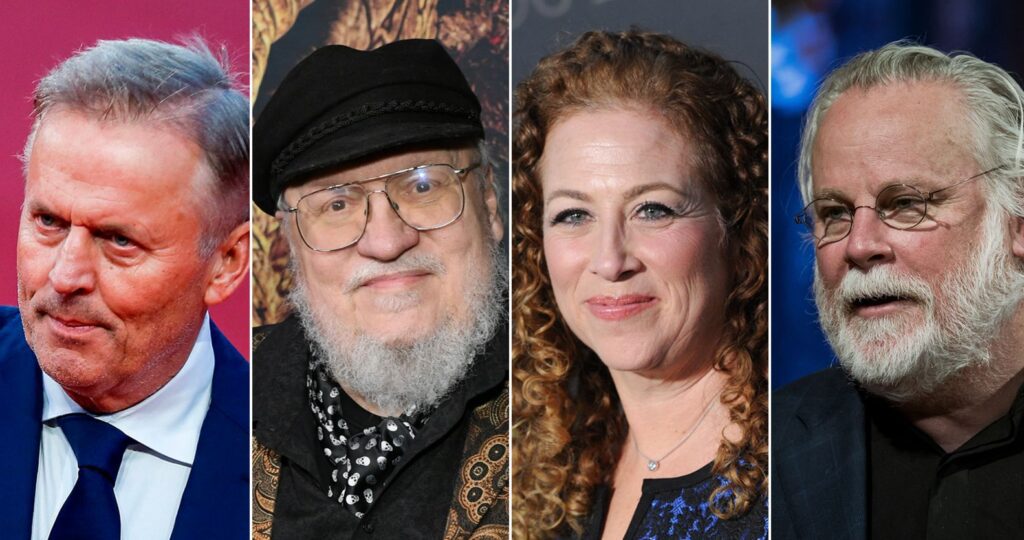The Heart of the Controversy
In an unexpected twist, renowned authors including George R.R. Martin, Jodi Picoult, and John Grisham have teamed up with the Authors Guild to challenge OpenAI. The primary accusation? The AI giant’s alleged infringement on their copyrighted works.
ChatGPT Under Fire
OpenAI’s ChatGPT, a popular chatbot, finds itself at the center of this legal whirlwind. Critics argue that the technology unlawfully copies celebrated literary works, repurposing them to cultivate more sophisticated and human-like text responses.
The Authors Guild, in a recent press release, voiced concerns: “Generative AI looms as a grave threat to the authorship profession.” The guild underscores that OpenAI’s models might “write” in the style of noted authors, turning potential profits for the tech firm, while sidelining the original authors.
A worrying trend has emerged with AI-driven endeavors crafting alternate volumes for Martin’s famed Game of Thrones series, along with other AI-composed books now available on Amazon.
The Broader Implications of AI on Copyright
The OpenAI lawsuit isn’t an isolated event. The broader creative world has voiced concerns over how generative AI might affect intellectual properties. Earlier this year, a revelation stunned an author: AI-generated books were being sold under her name on Amazon.
The CEO of OpenAI, Sam Altman, responded to the rising tide of concerns, saying in a Congressional address, “Creators should have control over their creations. We need innovative solutions ensuring their success in this AI-driven landscape.”
In a move towards reform, US policymakers engaged in discussions with representatives of creative industries. Mary Rasenberger, at the helm of the Authors Guild, urged the formation of AI-related protective legislation for writers.
Calling for Transparency and Fair Compensation
Over 10,000 authors, including literary luminaries like James Patterson, Roxane Gay, and Margaret Atwood, rallied together. They signed an open letter pressing AI industry frontrunners, including Microsoft and OpenAI, to obtain explicit consent from authors when using their writings to educate AI models. Additionally, the authors emphasized the necessity for fair compensation.
The Authors Speak Out
The urgency and concern resonate deeply among the authors. Jonathan Franzen commented, “Generative AI exacerbates Silicon Valley’s long-standing exploitation of content makers. Authors must have the prerogative to decide when their works ‘train’ AI.”
The legal battle underscores a pivotal crossroads for AI and creative industries. As technology advances, the pressing question remains: How can we balance innovation while respecting and protecting creators’ rights?












